Welcome to a journey that takes us beyond the aroma of freshly brewed coffee, as we dive into the intriguing world of cafés. You might wonder what’s found in cafés not coffee shops, and that’s precisely what we’ll explore in this feature. Our focus will be to dissect and understand the unique café culture that distinguishes these charming spots from the conventional coffee shops we often frequent.
A common misconception is that cafés and coffee shops are synonymous. But upon closer inspection, the subtle nuances that set them apart begin to surface. The scent of roasting coffee beans, the sound of frothy milk, and the sight of pastries lined up behind a glass case might be common to both, but the cultural, social, and gastronomic offerings of cafés extend far beyond this.
In this article, we will delve into the essence of cafés—their cultural significance, unique atmospheres, diverse gastronomic experiences, community-building roles, and their evolving future. From the tapestry of arts and literature woven within their spaces to their social impact on local communities, cafés offer an array of experiences that transform them into something more than just a place to grab a cup of joe.
So, get ready to uncover the key differences between cafés and coffee shops as we navigate through the enchanting labyrinth of the unique café culture. Prepare to be captivated!
Cafés vs Coffee Shops: Key Takeaway
- Cultural Significance of Cafés: Cafés, as social hubs, shape and reflect local culture, influencing arts and literature.
- The Unique Café Atmosphere: Cafés’ design, music, and sustainability practices contribute to an immersive, inviting ambiance beyond a quick coffee stop.
- The Gastronomic Experience in Cafés: Cafés offer diverse menus with specialty dishes, signature drinks, and an emphasis on local ingredients, catering to various tastes.
- Cafés and Community Building: Cafés play a crucial role in community building, supporting local businesses, hosting events, and championing social causes.
- The Future of Cafés: Adapting to the digital era and setting new trends, cafés continue to innovate, promising an evolving experience beyond traditional coffee shops.
Cultural Significance of Cafés
The rich tapestry of café culture cannot be woven without acknowledging the immense cultural significance these places hold. Cafés are not just establishments that serve food and beverages. They are social catalysts, bastions of local culture, and often influential platforms for arts and literature. Let’s delve into these aspects further. (1)
Cafés as Social Hubs
Unlike traditional coffee shops, cafés often transcend being just a place to grab your caffeine fix. They emerge as vital social hubs where people congregate, conversations flow freely, and ideas are exchanged. From casual catch-ups to intellectual debates, business meetings to dates, cafés host a multitude of social interactions.

In many ways, cafés act as community living rooms, providing a cozy, inviting space for people from different walks of life to connect. The diversity and vibrancy of these social interactions give cafés a dynamic energy that’s hard to find in standard coffee shops.
Cafés and Local Culture
Cafés are often reflective of the local culture of the place they are situated in. They may serve dishes that are unique to the locality, display artwork by local artists, or even host performances by local musicians. In this way, cafés become platforms that showcase and promote local talent and traditions.
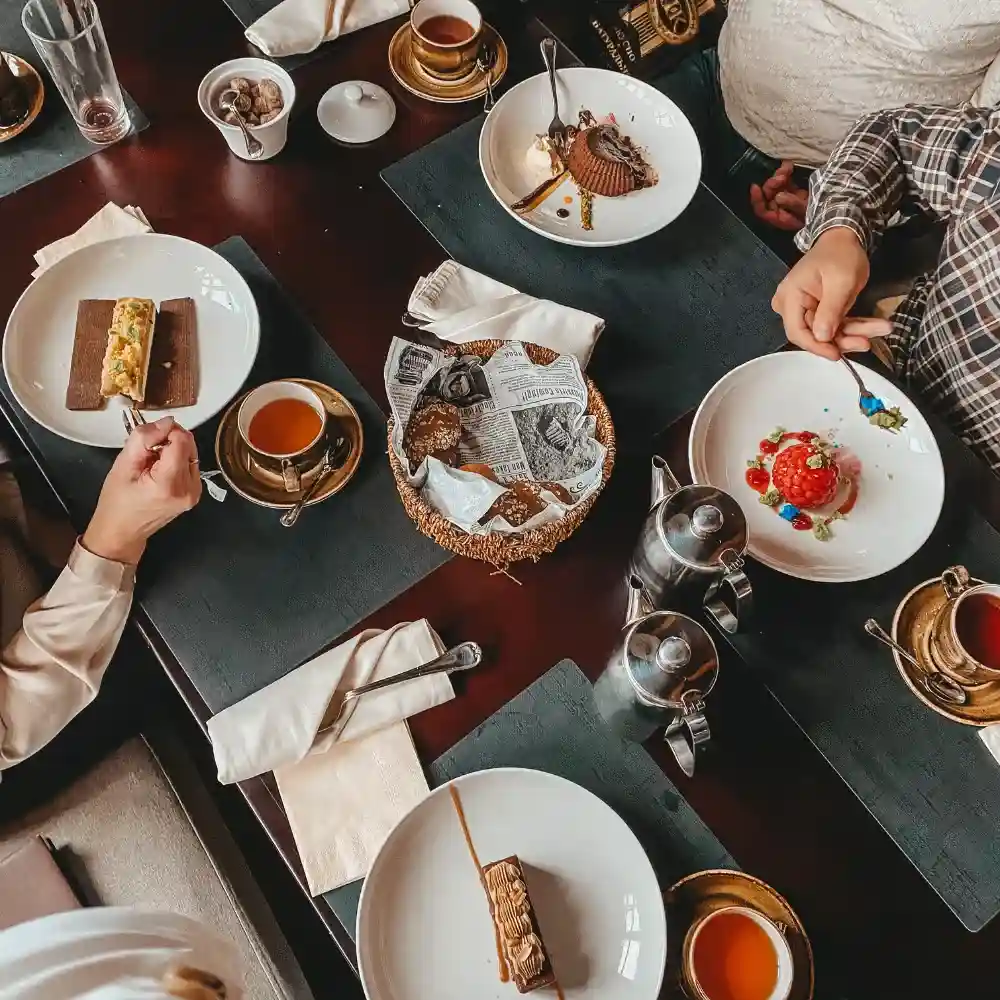
Moreover, the architecture and design of cafés are frequently influenced by local aesthetics, further anchoring them in the culture of the place.(2) Thus, when you step into a café, you’re immersing yourself in a slice of local culture, a feature that’s typically absent in cookie-cutter coffee shops.
Impact of Cafés on Arts and Literature
The impact of cafés on the world of arts and literature is profound and indisputable. Historically, cafés have been the breeding ground for literary movements, philosophical debates, and artistic revolutions.(3) Famous writers and poets, from Ernest Hemingway to J.K. Rowling, have been known to frequent cafés, finding inspiration amidst the casual bustle.
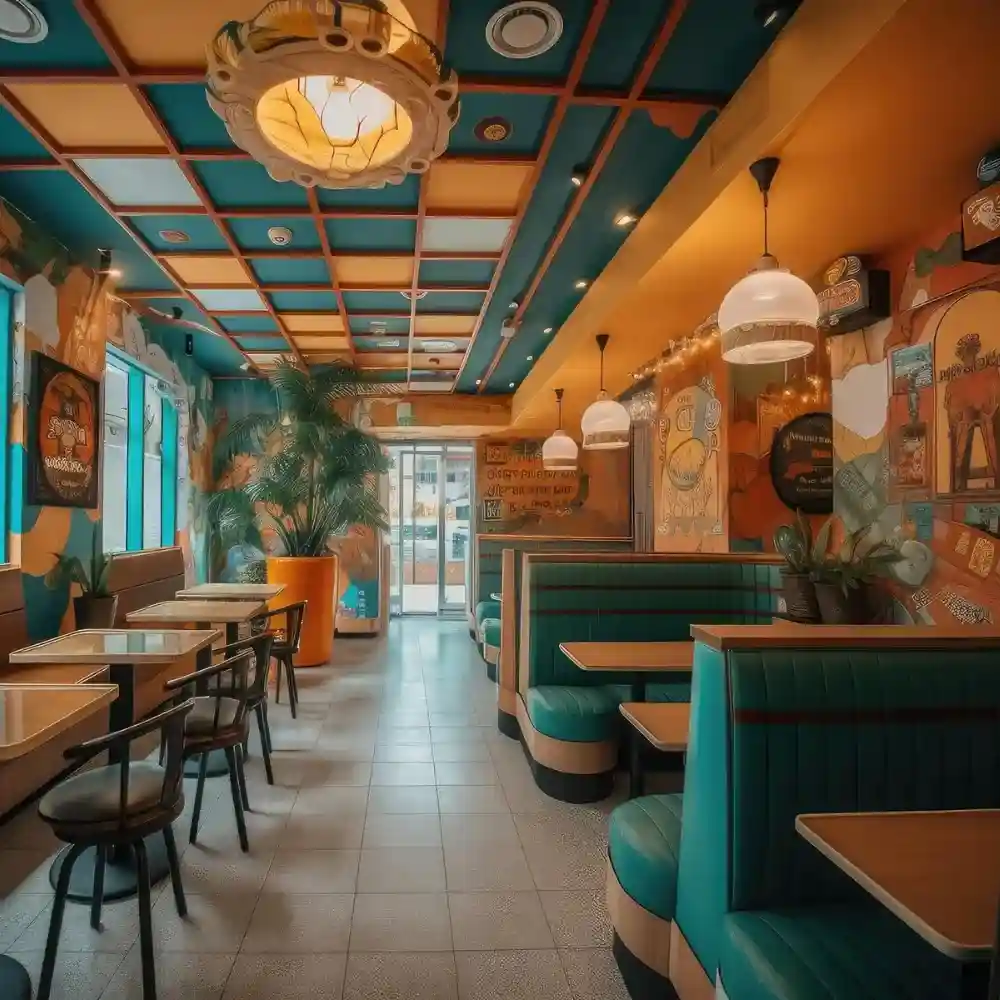
Art exhibitions, poetry readings, and music performances are common occurrences in cafés, making them significant contributors to the local arts scene. By offering a platform for artists to express themselves and reach an engaged audience, cafés enrich the artistic and intellectual life of the community, a role that extends far beyond what’s typically found in coffee shops.
The Unique Café Atmosphere
The ambiance and atmosphere in a café can vastly differ from that of a conventional coffee shop, making it a vital component of what’s found in cafés not coffee shops. The design, music, and eco-friendly practices contribute to creating a unique, immersive experience that goes beyond the realm of a simple transaction at a coffee shop.
Café Design and Ambiance
The design and ambiance of cafés often reflect a certain aesthetic that enhances the overall experience. From rustic decor with reclaimed wood furniture to chic urban spaces with modern art, the interior design of a café can take many forms. The layout, choice of furniture, lighting, and even the display of the menu all play a part in crafting a distinct ambiance that distinguishes cafés from typical coffee shops.
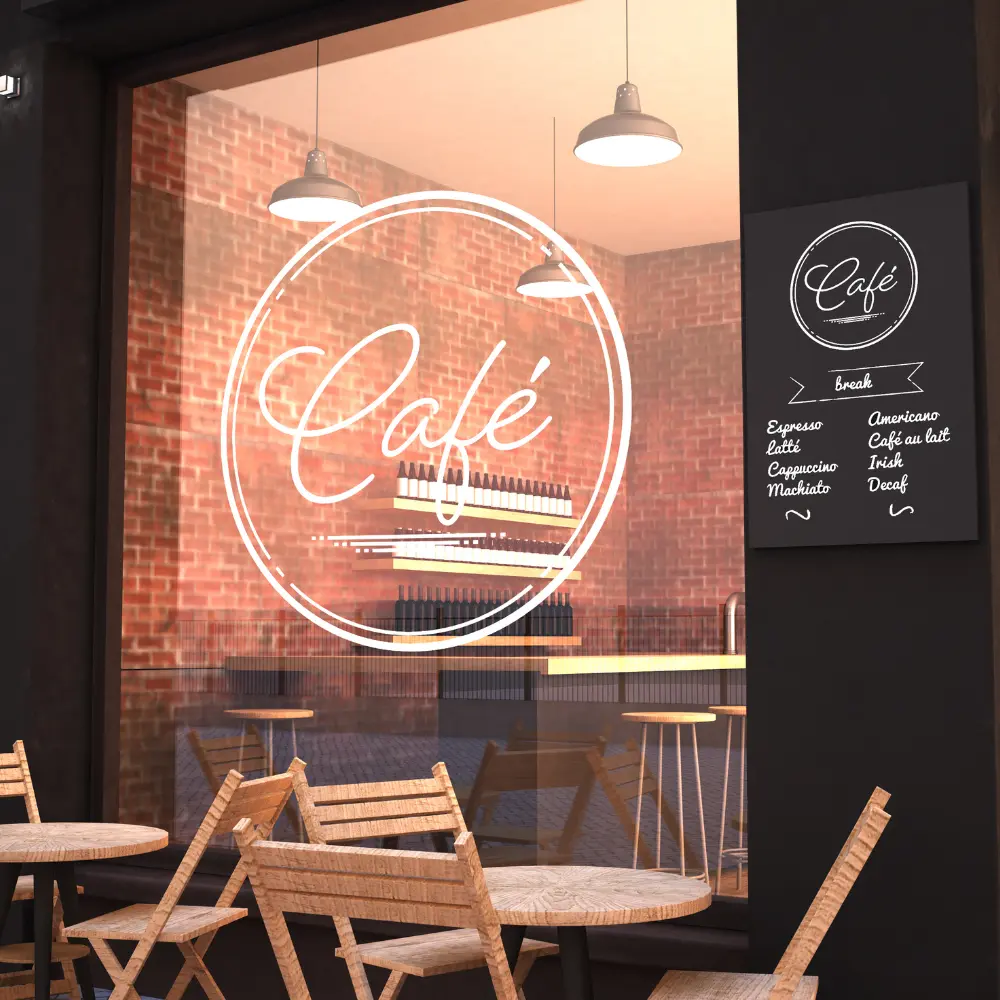
Cafés are also known for their outdoor seating arrangements, such as terraces, balconies, or sidewalk tables, which offer patrons an opportunity to relax while enjoying the local scenery. This blend of thoughtful design and atmosphere creates a comfortable, inviting environment that encourages customers to linger and enjoy their visit.
Cafés and Music: Live Performances and Beyond
Music is another element that significantly contributes to the atmosphere in a café. The carefully curated playlists often complement the café’s overall aesthetic and mood, enhancing the customer’s experience.
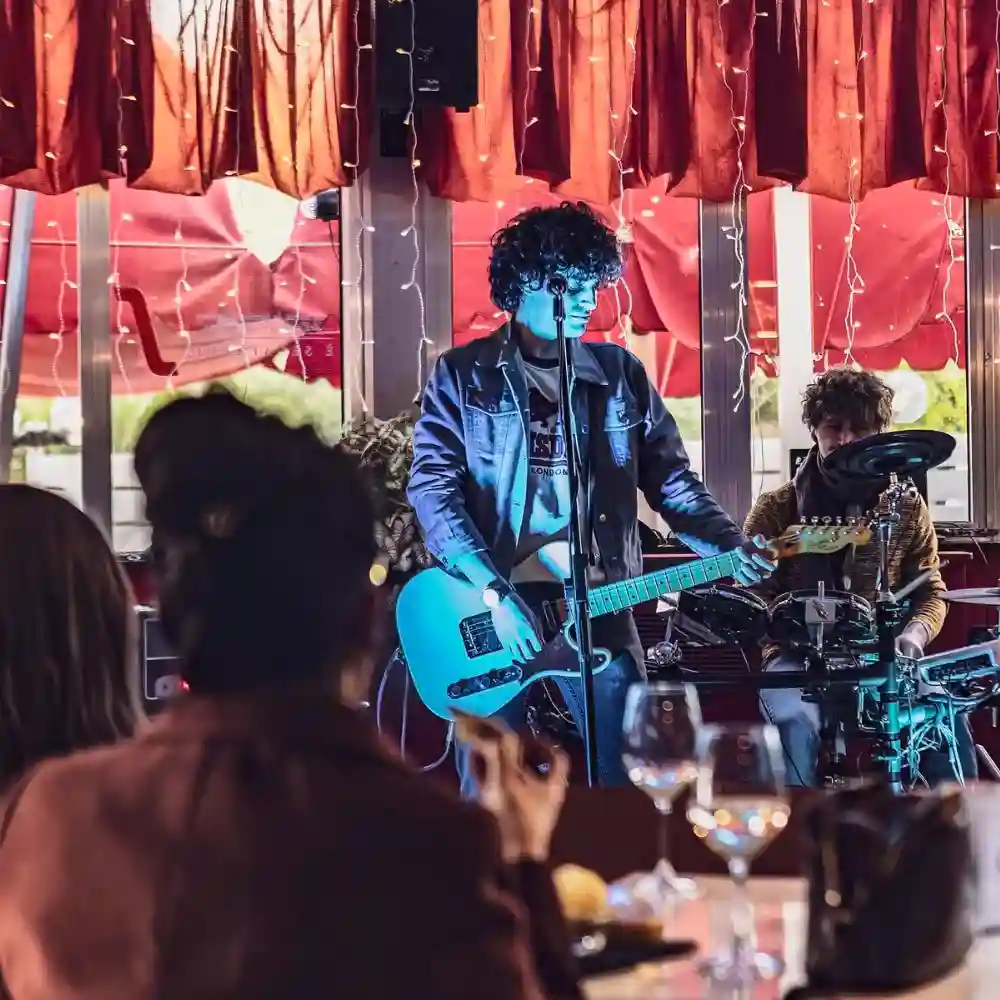
Unlike many coffee shops, cafés often host live music performances. Whether it’s an acoustic set on a lazy Sunday afternoon or a jazz trio on a busy Friday night, live music brings a vibrancy and energy to cafés that’s rarely replicated in standard coffee shops. This element of live entertainment not only provides a platform for local artists but also creates a dynamic and engaging experience for patrons.
Sustainability and Eco-Friendly Practices in Cafés
Increasingly, cafés are becoming champions of sustainability and eco-friendly practices. This commitment is evident in various aspects of their operations, from sourcing locally grown, organic ingredients to using biodegradable packaging, and even adopting energy-efficient appliances.
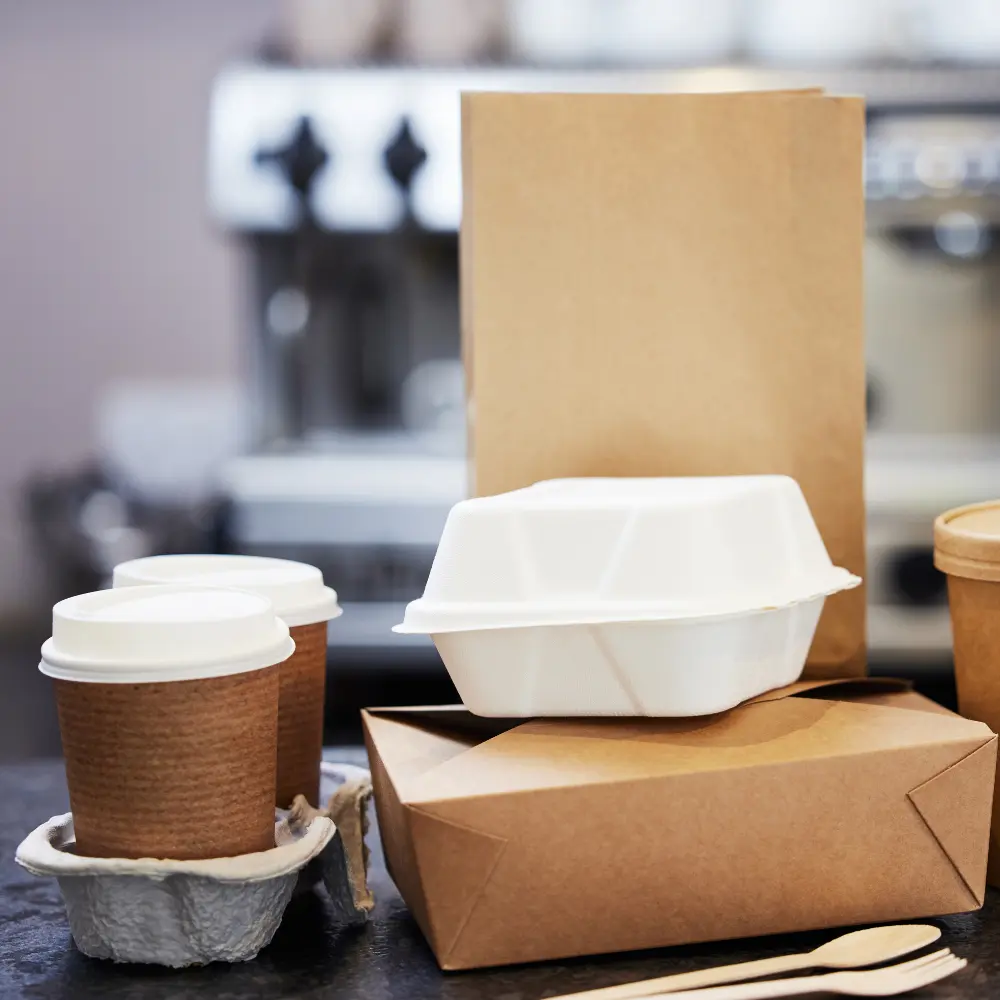
Many cafés also feature recycling and composting programs and work towards minimizing food waste. The sustainability efforts of these cafés resonate with environmentally conscious consumers, making them a preferred choice over traditional coffee shops that may not prioritize these values.
In this way, cafés are not only venues for food, beverages, and socializing, but they also become advocates for sustainable practices, playing a crucial role in pushing the envelope of what’s typically expected from food and beverage establishments.
The Gastronomic Experience in Cafés
Another dimension that sets cafés apart from typical coffee shops is the gastronomic experience they offer. The variety of culinary delights that you can find in cafés goes beyond the usual espresso and pastry combination that’s so common in coffee shops. Cafés pride themselves on their specialty dishes, signature drinks, and the inclusion of local ingredients in their menus.
Specialty Dishes and Signature Drinks
Unlike the standardized offerings of most coffee shops, cafés often provide a wide array of specialty dishes and signature drinks that cater to diverse palates. From gourmet sandwiches and artisanal cheeses to sweet and savory crepes, cafés usually offer an extensive menu that is meticulously curated and frequently updated.

The drink offerings in cafés also go beyond the traditional coffee menu. You might find a variety of specialty teas, artisanal hot chocolate, and even concoctions like lavender lemonade or rosemary-infused iced tea, which add an extra element of novelty to the café experience.
The Role of Local Ingredients in Café Menus
Cafés often emphasize the use of fresh, local ingredients in their food and drink offerings. This local sourcing not only ensures the freshness and quality of the menu items but also helps support the local economy.

Whether it’s farm-fresh eggs for your breakfast omelet, locally sourced honey for your tea, or the artisanal cheese from a nearby dairy for your sandwich, the use of local ingredients makes each dish a testament to the local culinary landscape. This is an aspect of the gastronomic experience that is rarely replicated in traditional coffee shops.
Wine, Beer, and Other Café Drinks
While coffee shops primarily focus on their namesake beverage, cafés tend to have a broader range of drink offerings. In addition to coffee and non-coffee options, many cafés serve a selection of wines, beers, and even cocktails. Some cafés might host happy hours or wine tasting events, further distinguishing themselves from their coffee-centric counterparts.
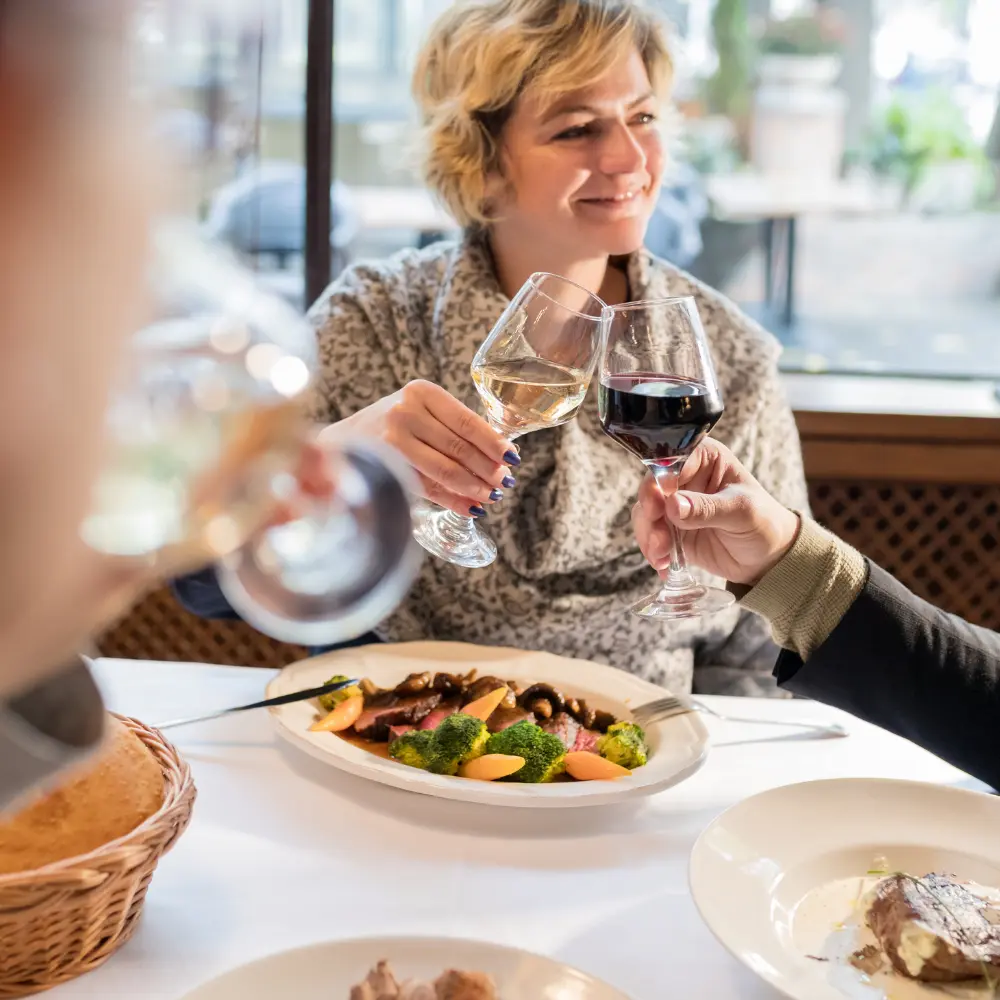
This wide selection caters to different customer preferences and makes cafés a versatile choice for various occasions – a casual brunch, a quiet afternoon of reading, or an evening out with friends. This blend of gastronomy and variety is part of what you’ll find in cafés, not coffee shops.
Cafés and Community Building
One of the most defining features of cafés, setting them apart from coffee shops, is their role in community building. Cafés often extend beyond being mere establishments for food and drink, transforming into vital facets of their communities. They support local businesses, host community events, and often champion social causes, becoming integral components of the social fabric.
Cafés as Local Business Supporters
Cafés frequently source their ingredients locally, collaborate with local artisans, and display products from local businesses. Whether it’s showcasing handmade crafts, selling local produce, or promoting books from local authors, cafés often position themselves as platforms for local businesses. This symbiotic relationship not only provides these businesses with a place to display and sell their products but also offers customers a unique, locally-rooted experience.
The Role of Cafés in Community Events and Gatherings
Cafés often serve as venues for various community events and gatherings. From open mic nights and book clubs to local fundraising events and workshops, cafés offer their space as a hub for community engagement.
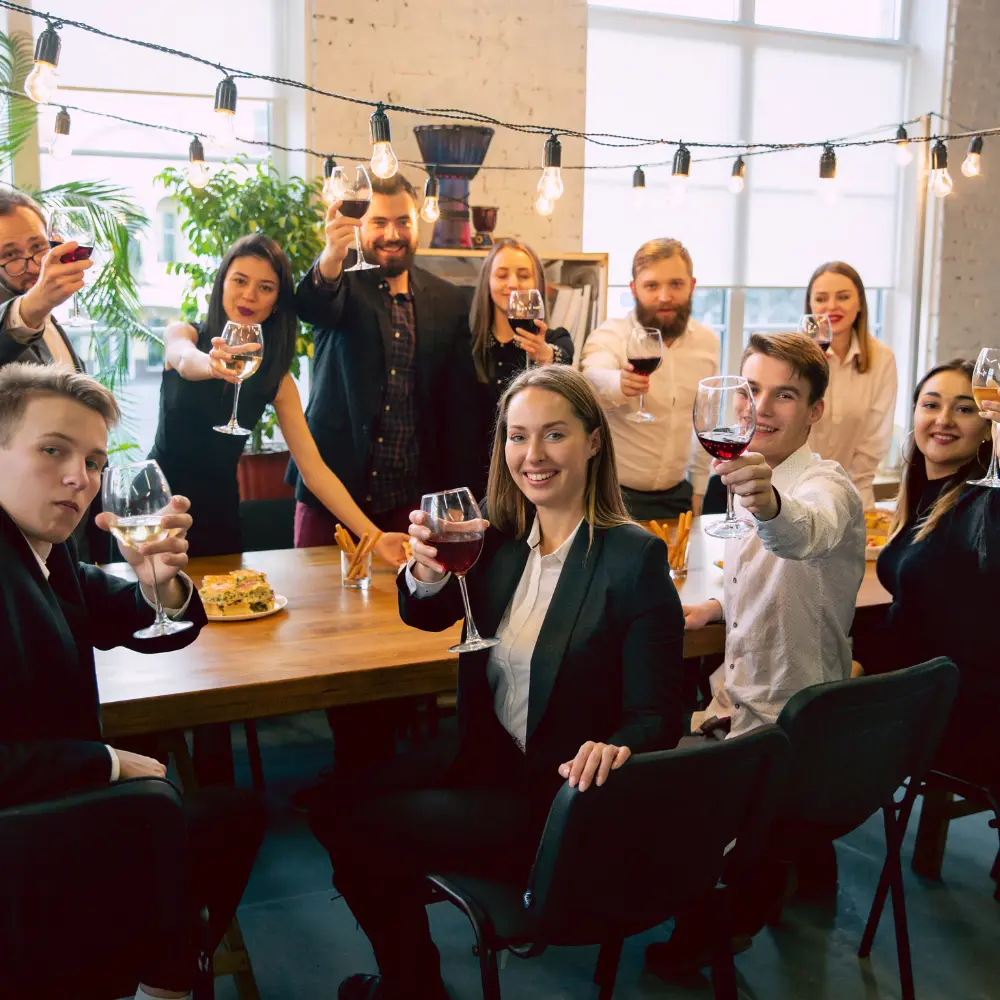
In hosting such events, cafés become more than just places to eat and drink – they transform into social, cultural, and even educational centers, strengthening community bonds and fostering a sense of belonging. This community-engagement aspect adds to the unique atmosphere you’ll find in cafés, not coffee shops.
Cafés and Social Causes
Many cafés are deeply rooted in social causes and use their platforms to advocate for issues that resonate with their values. This advocacy can take many forms: a café might donate a portion of its profits to a local charity, use fair trade ingredients to support ethical farming practices, or even provide employment opportunities for marginalized groups.
Such commitment to social responsibility not only elevates the status of a café within the community but also appeals to customers who value businesses with a social conscience. This is another aspect of what’s found in cafés not coffee shops, reinforcing the unique role that cafés play in their communities.
The Future of Cafés
The café culture has evolved significantly over the years, and as we look towards the future, it promises to continue to innovate and adapt. From embracing the digital era to setting new trends, cafés are consistently pushing the boundaries of the food service industry. Let’s explore what the future might hold for cafés.
How Cafés are Adapting to the Digital Era
In the digital era, cafés are making changes to keep up with technology and changing customer expectations. Many cafés have adopted digital platforms for ordering and payment, enhancing the customer experience by making it more streamlined and efficient.

Others are using social media platforms not just for marketing, but also for engaging with customers and building a sense of community online. This digital engagement extends the social nature of cafés into the virtual realm, something that conventional coffee shops might not emphasize.
Emerging Café Trends
Several trends are shaping the future of cafés. One such trend is the rise of ‘third-wave’ coffee, where cafés focus on high-quality, artisanal coffee with an emphasis on ethical sourcing and expert brewing techniques.

Another trend is the growth of themed cafés, such as book cafés, pet cafés, or gaming cafés, which cater to specific interests and create unique experiences for patrons.
Health-focused cafés are also on the rise, offering a range of nutritious and dietary-specific options like vegan, gluten-free, or organic offerings.(4) These trends highlight the continuous evolution of what’s found in cafés not coffee shops.
Cafés and the Future of Food Service
Cafés are poised to play a significant role in shaping the future of the food service industry. Their focus on local sourcing, sustainability, and community engagement positions them as pioneers in the industry.
Moreover, their adaptability and willingness to innovate – whether it’s in their menu offerings, design aesthetics, or technological adoption – ensure that they continue to offer unique experiences that cater to evolving customer preferences.
As we look to the future, it’s clear that the café culture will continue to flourish and redefine what we expect from food and beverage establishments. This continuous evolution makes cafés an exciting part of the culinary landscape, offering experiences that go beyond what’s typically found in coffee shops.
Conclusion
As we’ve explored throughout this journey, the unique café culture encompasses so much more than serving food and beverages. What’s found in cafés not coffee shops is a rich tapestry of social interactions, cultural representations, artistic expressions, and community involvement. Cafés extend beyond the realm of mere establishments to being social hubs, reflecting the local culture, championing social causes, and even shaping the future of the food service industry.
The café experience is intrinsically linked to its locality, its patrons, and its community, providing a unique blend of gastronomy, socializing, and community building. As each café cultivates its distinct personality, it offers us a window into the local culture, making every visit an immersive experience.
So, next time you step into a café, take a moment to appreciate all the elements that contribute to its unique culture, because what you’ll find in cafés not coffee shops is a testament to the rich, diverse, and evolving café culture that we have come to know and love.
FAQ
What kind of social and cultural impact do cafés have on a community?
Cafés serve as social hubs and cultural platforms, influencing local arts, literature, and hosting community events, thus fostering a sense of belonging and community spirit.
How do cafés contribute to the local economy and environment?
Cafés contribute to the local economy by supporting local businesses and artisans. Environmentally, many prioritize sustainability and eco-friendly practices, such as using locally sourced, organic ingredients.
What unique offerings can one expect in a café that are not typical in a coffee shop?
Cafés often have diverse menus with specialty dishes and signature drinks, including alcoholic beverages. They also host events and support local artisanal products, offering a richer experience beyond just food and drinks.
What are the emerging trends shaping the future of cafés?
Emerging trends include the rise of 'third-wave' coffee, themed cafés, digital engagement, health-focused menus, and a heightened focus on sustainability and community engagement.













